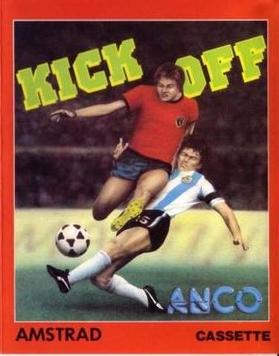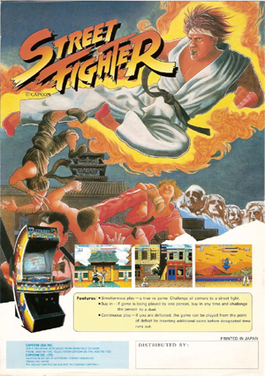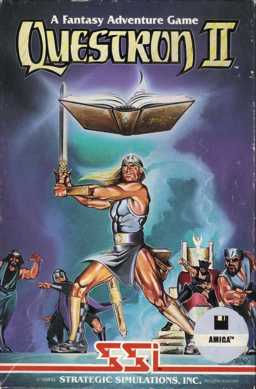Infocom was an American software company based in Cambridge, Massachusetts, that produced numerous works of interactive fiction. They also produced a business application, a relational database called Cornerstone.

Broderbund Software, Inc. was an American maker of video games, educational software, and productivity tools. Broderbund is best known for the 8-bit video game hits Choplifter, Lode Runner, Karateka, and Prince of Persia, as well as The Print Shop—originally for printing signs and banners on dot matrix printers—and the Myst and Carmen Sandiego games. The company was founded in Eugene, Oregon, and moved to San Rafael, California, then later to Novato, California. Brøderbund was purchased by SoftKey in 1998.

MicroProse is an American video game publisher and developer founded by Bill Stealey, Sid Meier, and Andy Hollis in 1982. It developed and published numerous games, including starting the Civilization and X-COM series. Most of their internally developed titles were vehicle simulation and strategy games.
Jaleco Ltd. was a corporate brand name that was used by two previously connected video game developers and publishers based in Japan. The original Jaleco company was founded in 1974 as Japan Leisure Company, founded by Yoshiaki Kanazawa, before being renamed to simply Jaleco in the early 1980s. This company was later acquired in 2000 by PCCW, who rebranded it as their Japanese game division, PCCW Japan, before reverting it to Jaleco in 2002. In 2006, Jaleco became independent from PCCW and renamed to Jaleco Holding, having their video game operations spun off into a new company, also called Jaleco. This new spin-off company was sold to mobile developer Game Yarou in 2009, with Jaleco Holding renaming itself to Encom Holdings shortly after.

Technōs Japan Corp. was a Japanese video game developer, best known for the Double Dragon and Kunio-kun franchises as well as Karate Champ, The Combatribes and Voltage Fighter Gowcaizer. As of June 2015, Arc System Works owns the intellectual properties of Technōs Japan.

Blockout is a puzzle video game published in 1989 by California Dreams. It was developed in Poland by Aleksander Ustaszewski and Mirosław Zabłocki. American Technos published an arcade version. Blockout is an unlicensed, 3D version of Tetris.

Kirby's Adventure is a 1993 platform game developed by HAL Laboratory and published by Nintendo for the Nintendo Entertainment System (NES). It is the second game in the Kirby series after Kirby's Dream Land (1992) on the Game Boy and the first to include the Copy Ability, which allows the main character Kirby to gain new powers by eating certain enemies. The game centers around Kirby traveling across Dream Land to repair the Star Rod after King Dedede breaks it apart and gives the pieces to his minions.

The Kick Off franchise is a series of football simulation video games created by Dino Dini. Kick Off was published by Anil Gupta's publishing house Anco Software for the Atari ST and Commodore Amiga. First released in 1989, Kick Off was well-received and won awards.
Rowan Software was a British software company focused on the development of computer games. The company was founded by Rod Hyde in 1987 and based in Runcorn, Cheshire. Rowan was best known as a publisher of flight simulators for the PC.

Cryo Interactive Entertainment was a French video game development and publishing company founded in 1990, but existing unofficially since 1989 as a developer group under the name Cryo. The company gained recognition for its adventure games, such as the commercially successful titles Dune, Dragon Lore and Atlantis: The Lost Tales, along with the racing series MegaRace.

Krome Studios Melbourne, originally Beam Software, was an Australian video game development studio founded in 1980 by Alfred Milgrom and Naomi Besen and based in Melbourne, Australia. Initially formed to produce books and software to be published by Melbourne House, a company they had established in London in 1977, the studio operated independently from 1987 until 1999, when it was acquired by Infogrames, who changed the name to Infogrames Melbourne House Pty Ltd.. In 2006 the studio was sold to Krome Studios.

The Bard's Tale II: The Destiny Knight is a fantasy role-playing video game created by Interplay Productions in 1986. It is the first sequel to The Bard's Tale, and the last game of the series that was designed and programmed by Michael Cranford.
Phantasie is a fantasy role-playing video game series designed by Winston Douglas Wood and published by Strategic Simulations in 1985. It was released for the Apple II, Atari 8-bit family, Atari ST, Amiga, Commodore 64, MS-DOS, and MSX.

Street Fighter is a 1987 arcade video game by Japanese developer and publisher Capcom. It is the first competitive fighting game produced by the company and the first installment in the Street Fighter series. It was a commercial success in arcades and introduced special attacks and some of the conventions made standard in later fighting games, such as the six-button controls and the use of command-based special moves.

Street Rod is a racing video game developed by P.Z.Karen Co. Development Group and Logical Design Works, based on an original concept by Magic Partners and published by California Dreams for Amiga, Commodore 64 and DOS. Street Rod exclusively featured Hot Rods, and early American Muscle Cars, specifically those from GM, Ford, and Chrysler. In December 2012, MK Consultancy, from the Netherlands, acquired the copyright ownership of the Street Rod games and re-released Street Rod as freeware in 2014. Street Rod SE, an updated version which includes all of the vehicles from the Car Data Disk, was also released as freeware in 2014.

Andrew Scott Gavin is an American video game programmer, entrepreneur, and novelist. Gavin co-founded the video game company Naughty Dog with childhood friend Jason Rubin in 1986, which released games including Crash Bandicoot and Jak and Daxter. Prior to founding Naughty Dog, Gavin worked in LISP at the MIT Artificial Intelligence Laboratory.
Street Rod 2 is a sequel to Street Rod developed by P.Z.Karen Co. Development Group and Logical Design Works, based on an original concept by Magic Partners and published by California Dreams for Amiga and MS-DOS. Street Rod 2 exclusively featured American Muscle Cars, specifically those from GM, Ford, and Chrysler. In December 2012, MK Consultancy, from the Netherlands, acquired the copyright ownership of the Street Rod games and re-released Street Rod 2, as well as the original game and an updated version, as freeware in 2014.

Questron II a 1988 role-playing video game published by Strategic Simulations for the Apple II, Apple IIGS, Atari ST, Commodore 64, IBM PC, and Amiga. It is the sequel to 1984's Questron. The story and original design is credited to Quest Software, the programming and artwork is credited to Westwood Associates.

Legend of Faerghail is a 1990 role-playing video game, developed by Electronic Design Hannover and published by reLINE Software for the Amiga, Atari ST and MS-DOS.
Tiertex Design Studios Limited was a British software development company and former video game developer based in Macclesfield, England; it was founded in 1986, focusing on porting games to home computers and handheld platforms.













